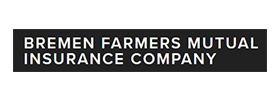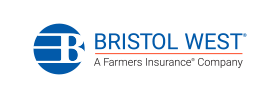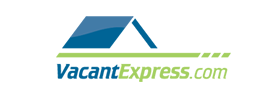According to an article from The Guardian, Americans are enduring summers almost a full two degrees (1.5F) hotter than the average in 1895. Some places have seen far more extreme summertime increases, reaching up to nearly 5F hotter.
This extreme summer heat can be dangerous for anyone, but especially kids, the elderly, and those with chronic illness. As the summer heat gets progressively more intense, it becomes ever more crucial to stay cool during the summer. Here’s our top tips for beating the heat!
Why is the summer heat so dangerous?
Summer heat can be particularly dangerous due to several factors. High temperatures significantly increase the body’s need for water, and inadequate fluid intake can lead to dehydration, manifesting as dizziness, headaches, and in severe cases, heat exhaustion or heat stroke.
Heat exhaustion is actually more common than you might think, occurring in roughly 20 of 100,000 people each year in the United States. It tends to be more common in urban areas during periods of extreme heat and causes anywhere between 240 and 833 deaths.
eat exhaustion, a milder form of heat-related illness, can develop after prolonged exposure to high temperatures with insufficient fluid replacement, causing heavy sweating, weakness, cold, pale, and clammy skin, a fast and weak pulse, nausea, vomiting, and fainting. Overexposure to the sun can cause sunburn, resulting in skin damage, pain, and an increased risk of skin cancer.
High temperatures may also exacerbate existing health conditions in vulnerable populations. This includes respiratory problems, heart disease, and diabetes. Heart edem
Tips for staying cool in the summer heat
Staying cool in the summer heat is crucial for preventing diseases caused by extreme heat. Here are some tips to stay comfortable, but most importantly safe!
Stay hydrated
Drink lots of water throughout the day, even if you don’t feel thirsty. You may even find yourself needing to drink more water than the usual recommended amount. Try to avoid overindulging in drinks that would otherwise dehydrate you, such as caffeinated drinks and alcohol.
Use sunscreen
Apply a broad-spectrum sunscreen with at least SPF 30 to protect your skin from harmful UV rays. Reapply every two hours, or more often if you are sweating or swimming. Keep in mind that even sunscreens labelled as water-resistant will wash off, so keep your sunscreen on hand!
Dress for the weather
Wear lightweight, loose-fitting, and light-colored clothing. Natural fabrics like cotton are breathable and help keep you cool.
Use fans and air-conditioning
Stay in air-conditioned buildings as much as possible. If you don’t have air conditioning at home, spend time in public places like shopping malls, libraries, or community centers. Use fans to circulate air and keep cool.
Take cool showers or baths
A cool shower or bath can help lower your body temperature. Alternatively, use a damp cloth to wipe your body or soak your feet in cool water.
Avoid strenuous activities
Limit intense physical activities, especially during peak heat. If you must exercise, do so in the early morning or late evening when it’s cooler.
Use cooling products
Items like cooling towels, ice packs, or misting fans can provide immediate relief from the heat.
Keep an eye on pets and children
Children and pets can overheat faster than us, and they may lack the communication skills to tell us they are unwell. Dogs, in particular, don’t have a means of sweating and regulating their temperature through panting/the bottom of their paws, so make sure they have plenty of access to shade and regular water through the day. Babies may fuss or cry, or may even do the exact opposite and become lethargic or unresponsive in extreme heat. And, as always, never leave a pet or child unattended in a hot car. Anything above 60F is considered dangerous for pets and children!
*A note for dogs: a common myth is that pouring water on your dog helps to keep them cool. On especially hot days, this is ill-advised! Unless the dog is swimming, pouring water on a dog can actually trap the water in their coat, which can heat up and increase their temperature.
Enjoying the summer heat safely
Enjoy the summer heat and take advantage of the summer months by choosing activities that minimize heat exposure. Consider going out in the early morning or late evening for outdoor activities like walking, jogging, cycling, etc. Water-based activities are great for all times of day, but especially if you want to go out during the hottest times of the day since they help you keep cool while being active. Of course, always remember the sunscreen and seek shade during peak hours!
For family fun, consider outdoor games that don’t require strenuous effort, such as frisbee, badminton, or a relaxed game of catch. Summer evenings are perfect for stargazing, outdoor movie nights, or having a barbecue with friends and family. Just ensure there is ample shade, plenty of fluids, and lighter food options.
We at AHI Group love the summer, but we understand that the extreme heat can be dangerous! Enjoy these summer months safely, and take the necessary precautions to keep your family safe. Happy summer!





























